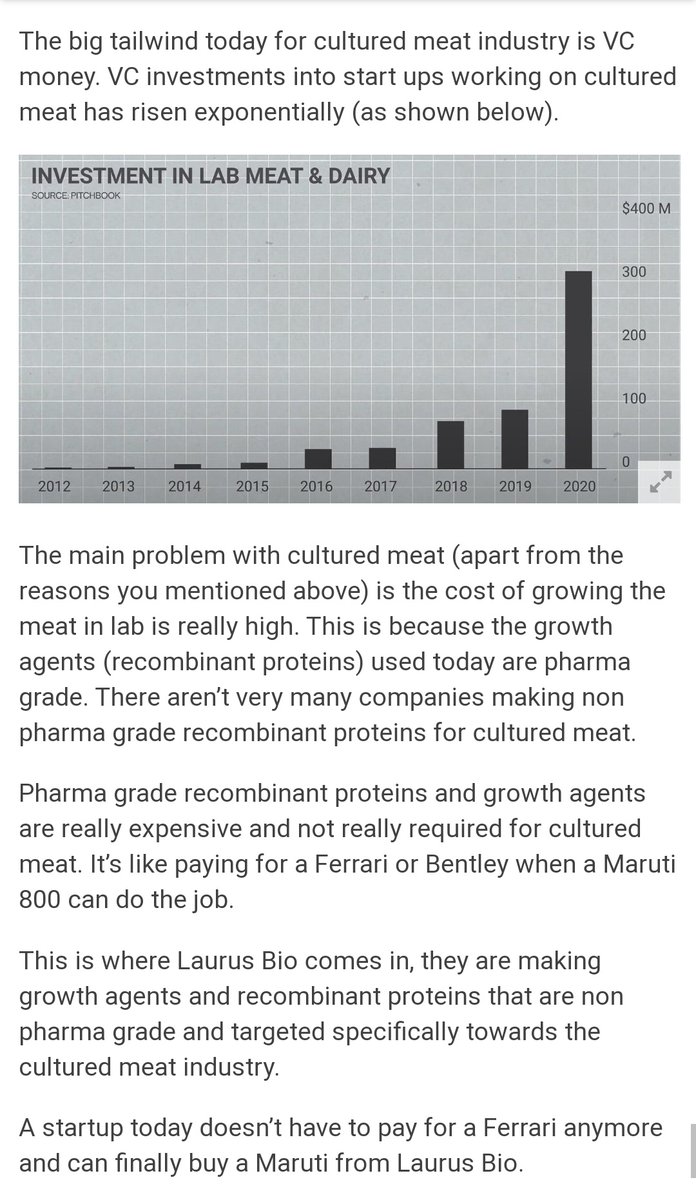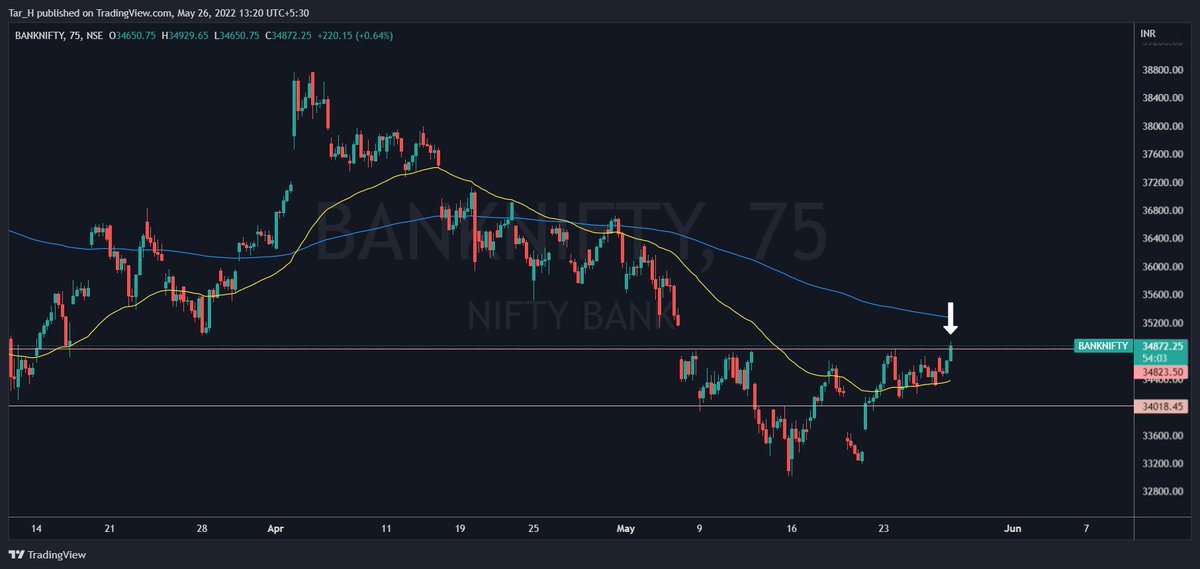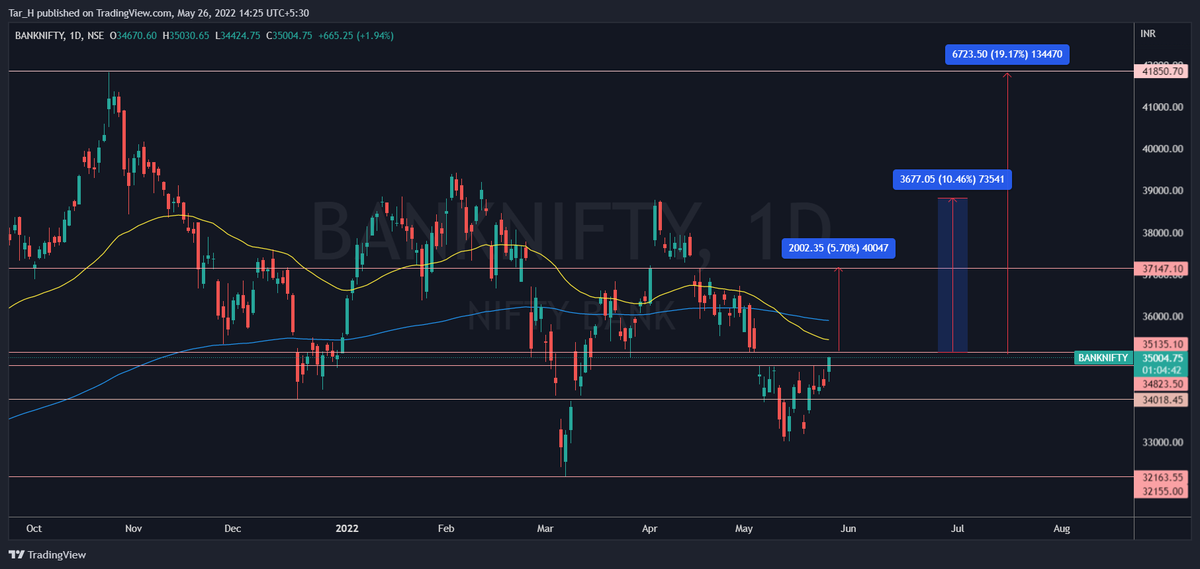This is pretty much all there is to valuations 👇🏼 I personally follow this same process.
(Excuse the handwriting, rough notes from CFA L2 Equity Valuations)
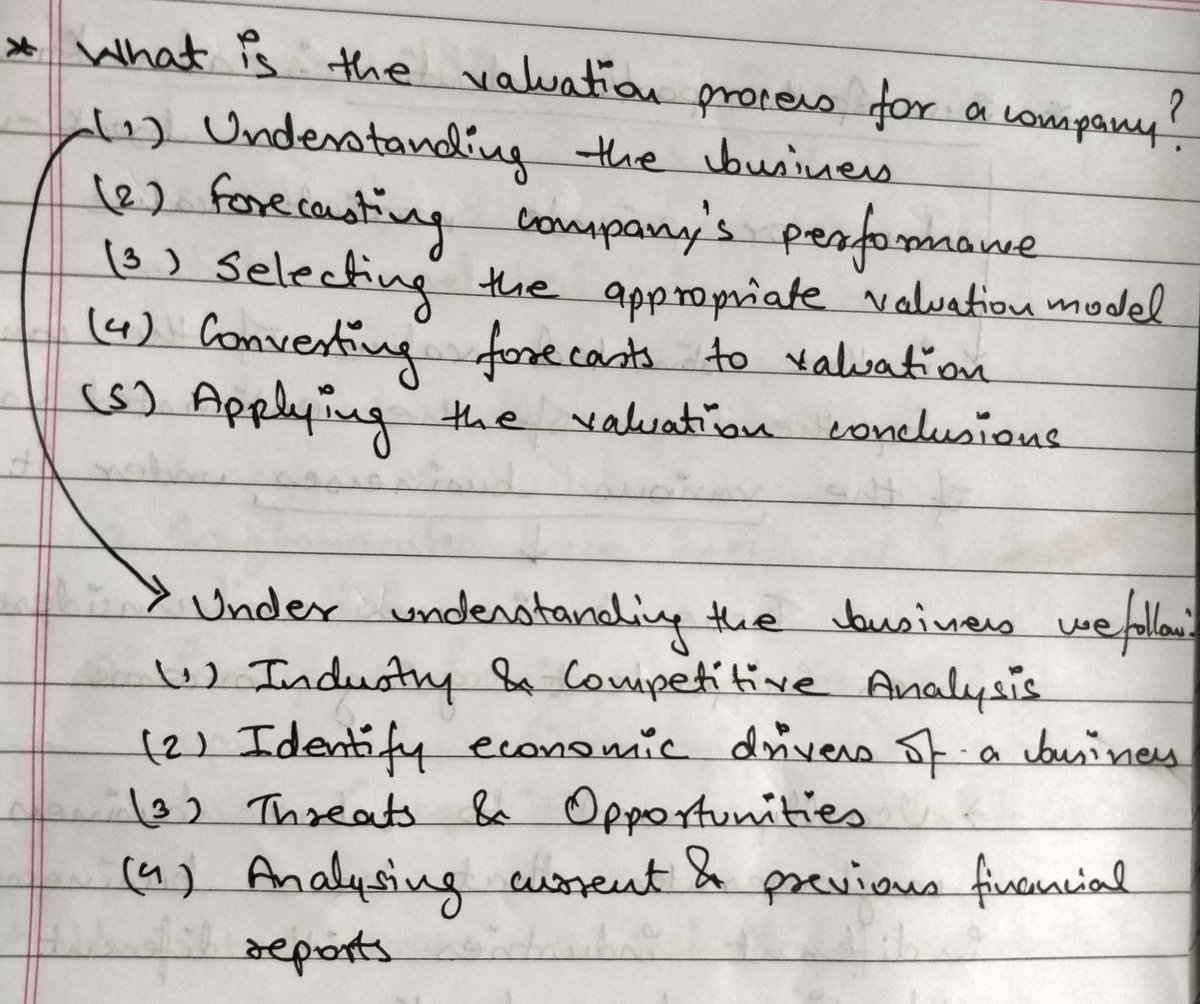
More from Tar ⚡
More from Itsthlearnings
Asset Allocation doesn't have one clear answer and shouldn't depend on stage of the market.
It depends on your
- Risk Appetite
- Goals
- Psychology
- Age
- Responsibilities
1/n https://t.co/aJjy4N90J9
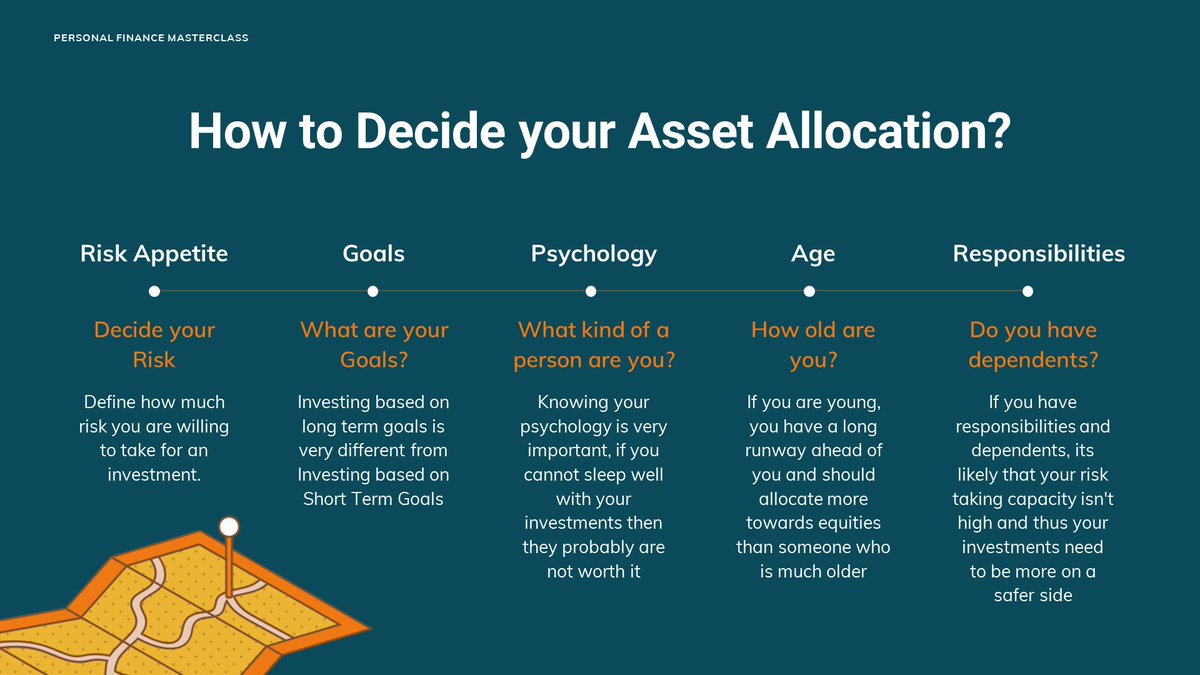
Someone who is
Young
Right out of College
Doesn't Need Money for Next 10 years
Doesn't Have any Dependents
should be allocated more towards Equities than someone who is
Old
Heading for Retirement
Needs Consistent Income
Has Many Dependents
2/n
Your psychology also has the biggest impact. Are you someone who gets afraid and loses sleep over 5 to 10% drawdowns and wants to book profits as soon as an investment gains in value
or Are you someone who can sit peacefully and do not let the daily movement of market impact you
Also allocate based on Goals.
(Extract taken from my Personal Finance Course, Releasing on SkillShare on Sunday, link to sign up for a Free access below)
https://t.co/IdBvCqO2DH
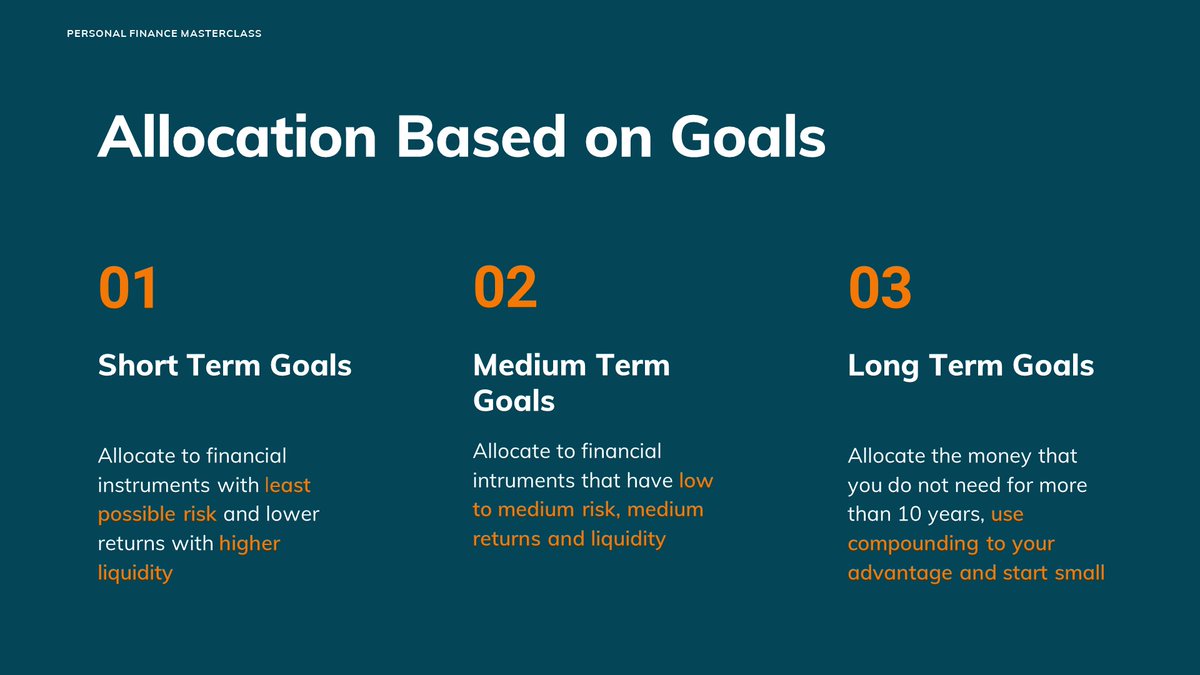
It depends on your
- Risk Appetite
- Goals
- Psychology
- Age
- Responsibilities
1/n https://t.co/aJjy4N90J9

Greatest challenge in the bull market is sound asset allocation which I have been facing alot. Want to buy super fundamentals cos. but can't buy em call. Latter is cos. % allocation in your portfolio.
— Amrit (@HeyAmrit) July 23, 2021
Can you'll shed light@connectgurmeet @Investor_Mohit @itsTarH @AnyBodyCanFly
Someone who is
Young
Right out of College
Doesn't Need Money for Next 10 years
Doesn't Have any Dependents
should be allocated more towards Equities than someone who is
Old
Heading for Retirement
Needs Consistent Income
Has Many Dependents
2/n
Your psychology also has the biggest impact. Are you someone who gets afraid and loses sleep over 5 to 10% drawdowns and wants to book profits as soon as an investment gains in value
or Are you someone who can sit peacefully and do not let the daily movement of market impact you
Also allocate based on Goals.
(Extract taken from my Personal Finance Course, Releasing on SkillShare on Sunday, link to sign up for a Free access below)
https://t.co/IdBvCqO2DH

You May Also Like
THREAD: 12 Things Everyone Should Know About IQ
1. IQ is one of the most heritable psychological traits – that is, individual differences in IQ are strongly associated with individual differences in genes (at least in fairly typical modern environments). https://t.co/3XxzW9bxLE

2. The heritability of IQ *increases* from childhood to adulthood. Meanwhile, the effect of the shared environment largely fades away. In other words, when it comes to IQ, nature becomes more important as we get older, nurture less. https://t.co/UqtS1lpw3n

3. IQ scores have been increasing for the last century or so, a phenomenon known as the Flynn effect. https://t.co/sCZvCst3hw (N ≈ 4 million)
(Note that the Flynn effect shows that IQ isn't 100% genetic; it doesn't show that it's 100% environmental.)

4. IQ predicts many important real world outcomes.
For example, though far from perfect, IQ is the single-best predictor of job performance we have – much better than Emotional Intelligence, the Big Five, Grit, etc. https://t.co/rKUgKDAAVx https://t.co/DWbVI8QSU3

5. Higher IQ is associated with a lower risk of death from most causes, including cardiovascular disease, respiratory disease, most forms of cancer, homicide, suicide, and accident. https://t.co/PJjGNyeQRA (N = 728,160)

1. IQ is one of the most heritable psychological traits – that is, individual differences in IQ are strongly associated with individual differences in genes (at least in fairly typical modern environments). https://t.co/3XxzW9bxLE

2. The heritability of IQ *increases* from childhood to adulthood. Meanwhile, the effect of the shared environment largely fades away. In other words, when it comes to IQ, nature becomes more important as we get older, nurture less. https://t.co/UqtS1lpw3n

3. IQ scores have been increasing for the last century or so, a phenomenon known as the Flynn effect. https://t.co/sCZvCst3hw (N ≈ 4 million)
(Note that the Flynn effect shows that IQ isn't 100% genetic; it doesn't show that it's 100% environmental.)

4. IQ predicts many important real world outcomes.
For example, though far from perfect, IQ is the single-best predictor of job performance we have – much better than Emotional Intelligence, the Big Five, Grit, etc. https://t.co/rKUgKDAAVx https://t.co/DWbVI8QSU3

5. Higher IQ is associated with a lower risk of death from most causes, including cardiovascular disease, respiratory disease, most forms of cancer, homicide, suicide, and accident. https://t.co/PJjGNyeQRA (N = 728,160)



